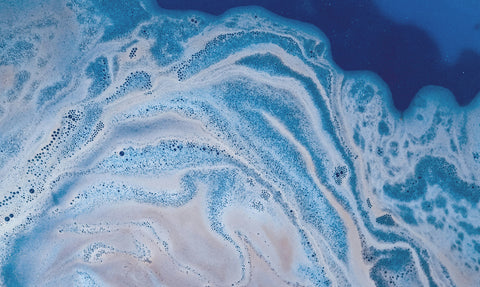Dishwasher pods and tablets have become incredibly popular for their convenience. They’re easy to use, mess-free, and promise sparkling clean dishes. But there's a lot of evidence that suggests they could be harming both our health and the environment. Let's take a closer look at what dishwasher pods are, the ingredients inside and the problems they can cause.
What are Dishwasher Pods?
Dishwasher pods are small packets filled with detergent, enzymes, and often a rinse-aid used in dishwashers. They're wrapped in a special plastic film called polyvinyl alcohol (PVA) that dissolves in water, releasing the cleaning agents to wash your dishes.
Chemicals of Concern in Dishwasher Pods
Conventional dishwasher pods contain strong chemicals. The artificial smell and colour alone suggest these are ingredients that aren't great for our health. The pods can leave residues on dishes, which means we might be ingesting small amounts of these chemicals over time.
Some of the most common and toxic ingredients found in most conventional brands include:
- Phthalates: a well known endocrine-disruptor that has been shown to cause a number of negative impacts on human health. (1)
- Bleach: modern dishwasher pods and tablets contain a bleaching agent to help remove stains and give that sparkling effect (it's usually what causes those toxic-smelling fumes). Bleach is corrosive by nature, and can be damaging to skin and eyes, and poisonous if ingested. (2)
- Colourant: ever wondered why these pods are alarmingly bright blue, yellow or red? These artificial dyes aren't doing anything other than attempting to give the perception that the product is effective. Dyes are problematic because they contain many different chemicals which have some alarming impacts on our health. (3)
- Fragrance/Perfume: A labelling loophole used to disguise hundreds of undisclosed chemicals, known to cause skin irritation and more serious illnesses like asthma and fertility issues.
The PVA Controversy
PVA is a water-soluble synthetic polymer - a fancy name for the plastic coating that binds the tablet together. You’ll find it on the ingredient list of virtually every laundry or dishwasher tablet or sheet.
While marketed as biodegradable, there is some debate on whether it is fully soluble and therefore what impact it has on the environment. There are studies that argue both sides, but it is difficult to find solid independent sources.
Many environmental groups are calling for further research. Earlier this year, the New York City Council even considered banning the sale of products with a PVA coating until there is a better understanding of its impact on waterways. (4)
Regardless, PVA is ultimately a type of plastic, so if you’re trying to cut down your usage of plastic products, it’s a good thing to cut out. Plus, most pods come packaged in non-recyclable plastic bags.
Impact on the Environment
Many chemicals in dish pods are harmful to fish and other aquatic life. As these ingredients enter the drain and waterways, they can cause problems like algal blooms, which use up oxygen in the water, making it hard for aquatic animals to survive. Even products labelled as 'biodegradable' may do damage to your plants, especially if you use a greywater system.
Safer Dishwasher Alternatives
If you'd like to switch to a safer, eco-friendly alternative, we’ve just launched the WASH WILD Dishwasher Powder, a plant & mineral-based formulation without any of the ingredients listed above.
It's packaged in a recyclable tub, without a plastic scoop, to reduce your plastic waste. Plus, we've done a lot of testing to make sure it cleans just as well as any big name brand!

References
(1) https://www.ncbi.nlm.nih.gov/books/NBK441921/
(2) https://www.hsph.harvard.edu/news/features/the-big-3-why-phthalates-should-be-restricted-or-banned-from-consumer-products/
(3) https://www.ewg.org/cleaners/substance_groups/111-Colors/
(4) https://www.bloomberg.com/news/articles/2024-02-08/new-york-city-considers-banning-laundry-dishwasher-pods


